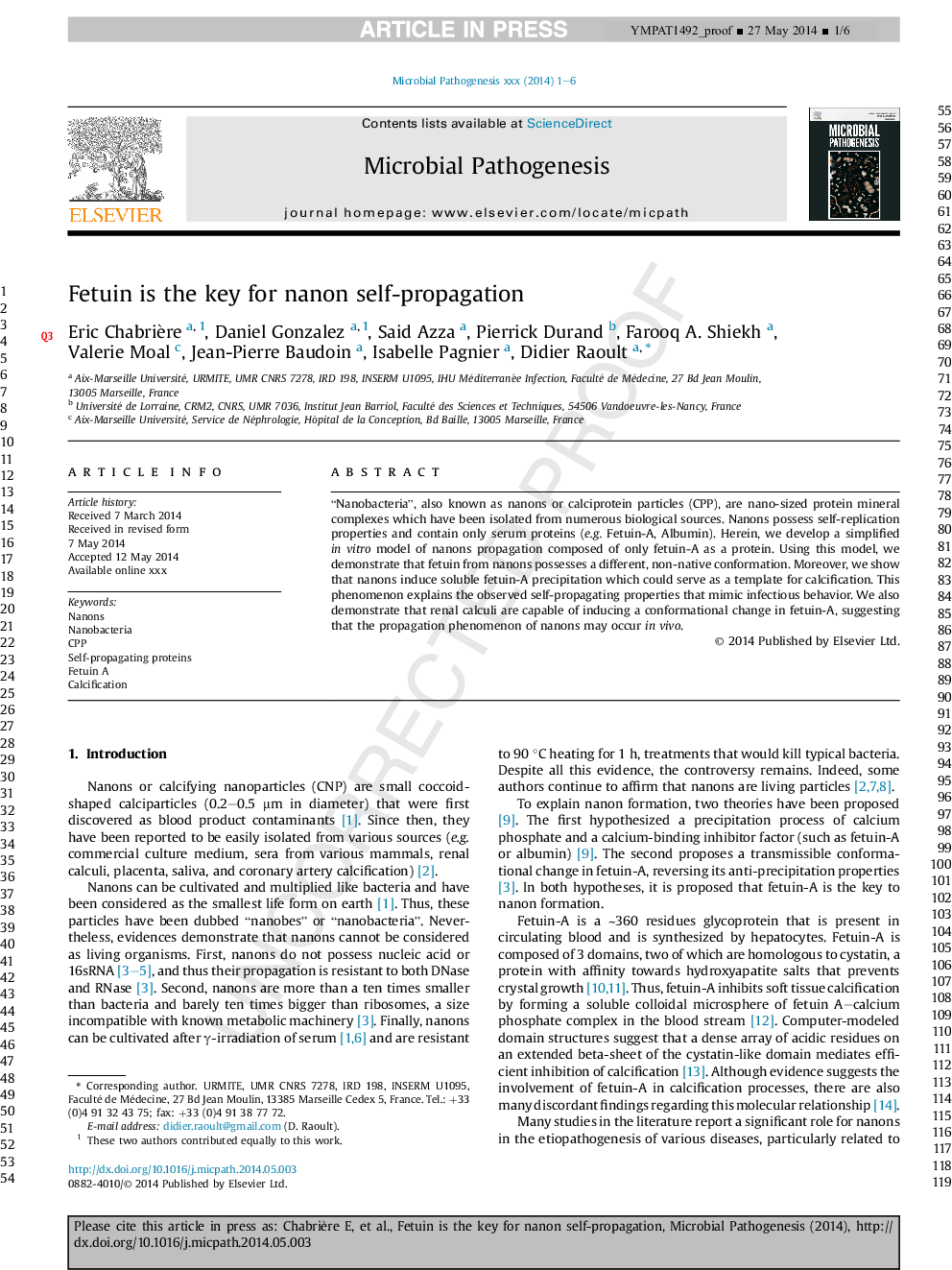| Article ID | Journal | Published Year | Pages | File Type |
|---|---|---|---|---|
| 6136253 | Microbial Pathogenesis | 2014 | 6 Pages |
Abstract
“Nanobacteria”, also known as nanons or calciprotein particles (CPP), are nano-sized protein mineral complexes which have been isolated from numerous biological sources. Nanons possess self-replication properties and contain only serum proteins (e.g. Fetuin-A, Albumin). Herein, we develop a simplified in vitro model of nanons propagation composed of only fetuin-A as a protein. Using this model, we demonstrate that fetuin from nanons possesses a different, non-native conformation. Moreover, we show that nanons induce soluble fetuin-A precipitation which could serve as a template for calcification. This phenomenon explains the observed self-propagating properties that mimic infectious behavior. We also demonstrate that renal calculi are capable of inducing a conformational change in fetuin-A, suggesting that the propagation phenomenon of nanons may occur in vivo.
Keywords
Related Topics
Life Sciences
Immunology and Microbiology
Microbiology
Authors
Eric Chabrière, Daniel Gonzalez, Said Azza, Pierrick Durand, Farooq A. Shiekh, Valerie Moal, Jean-Pierre Baudoin, Isabelle Pagnier, Didier Raoult,
